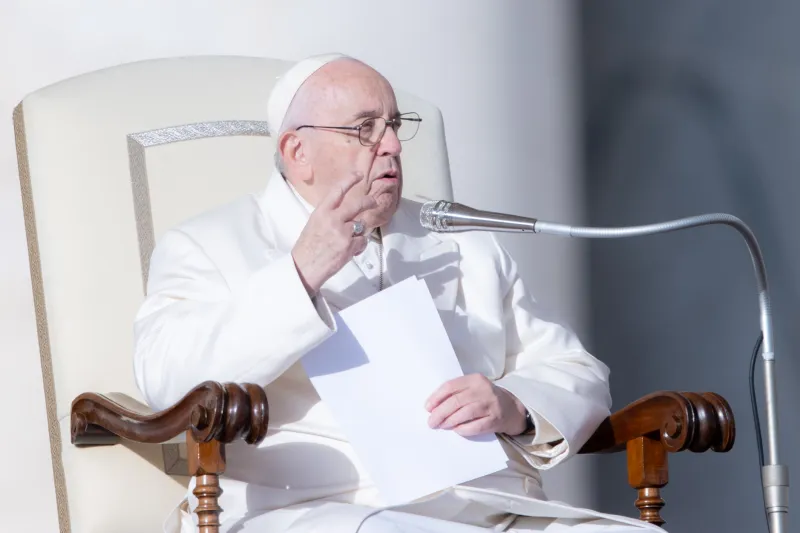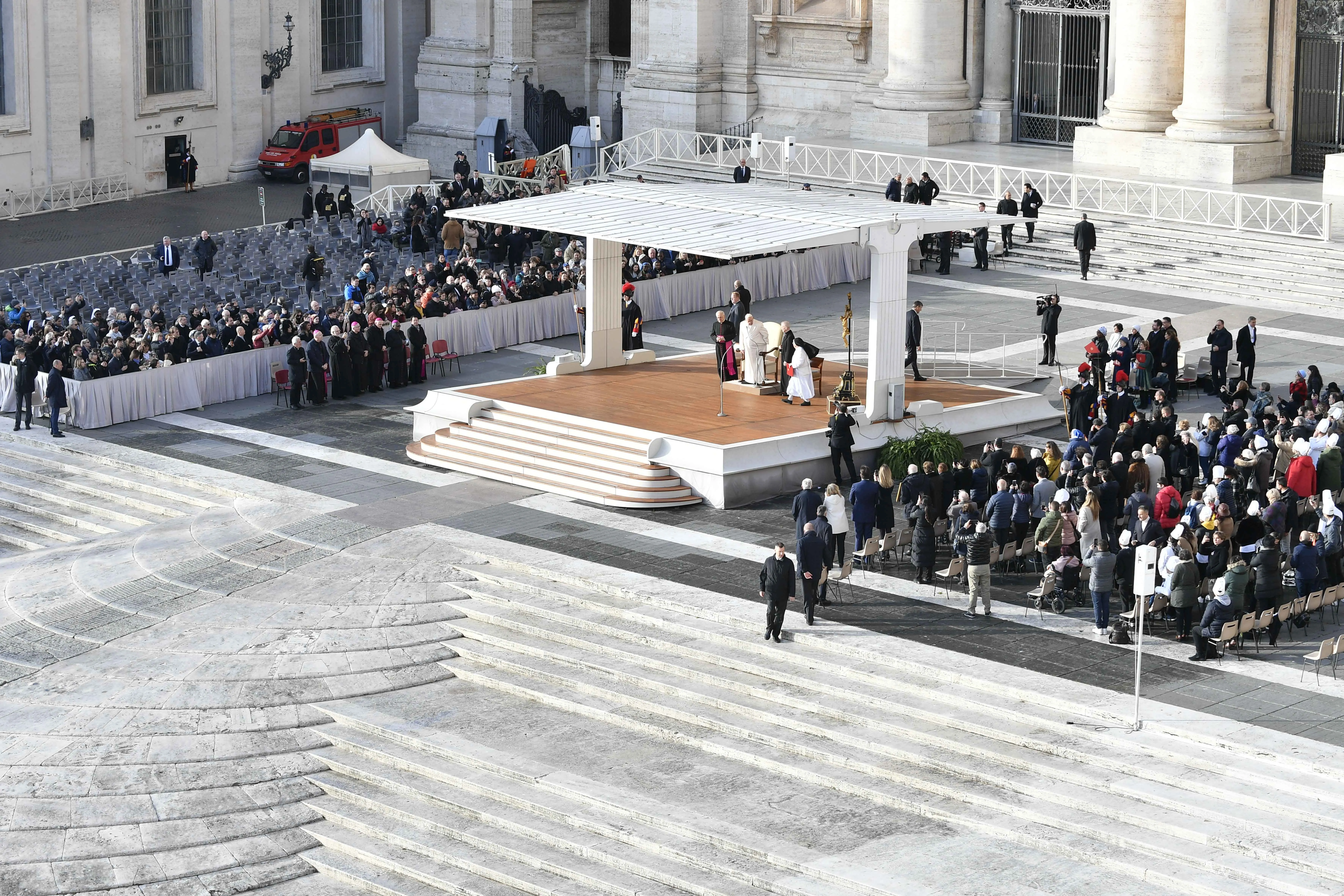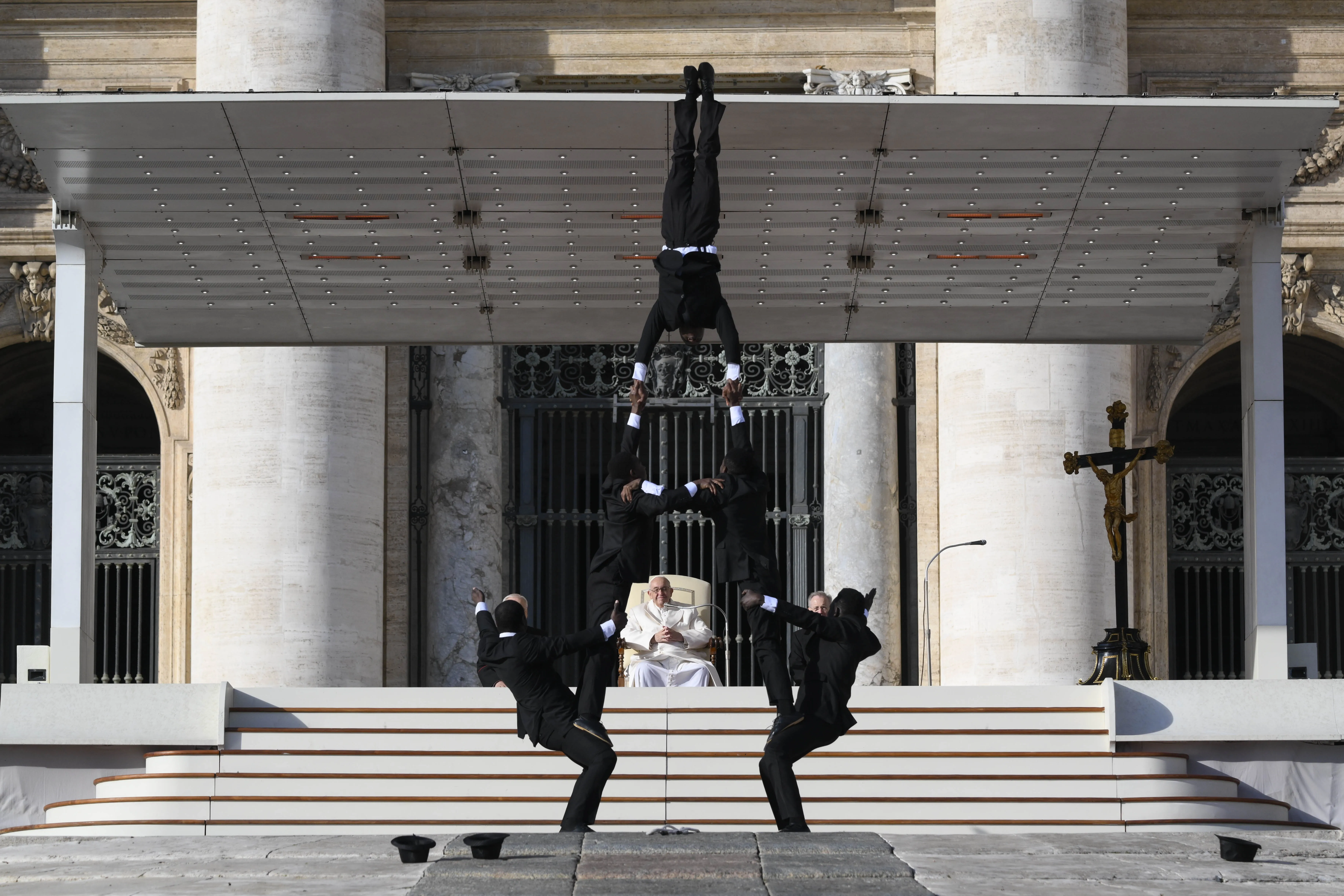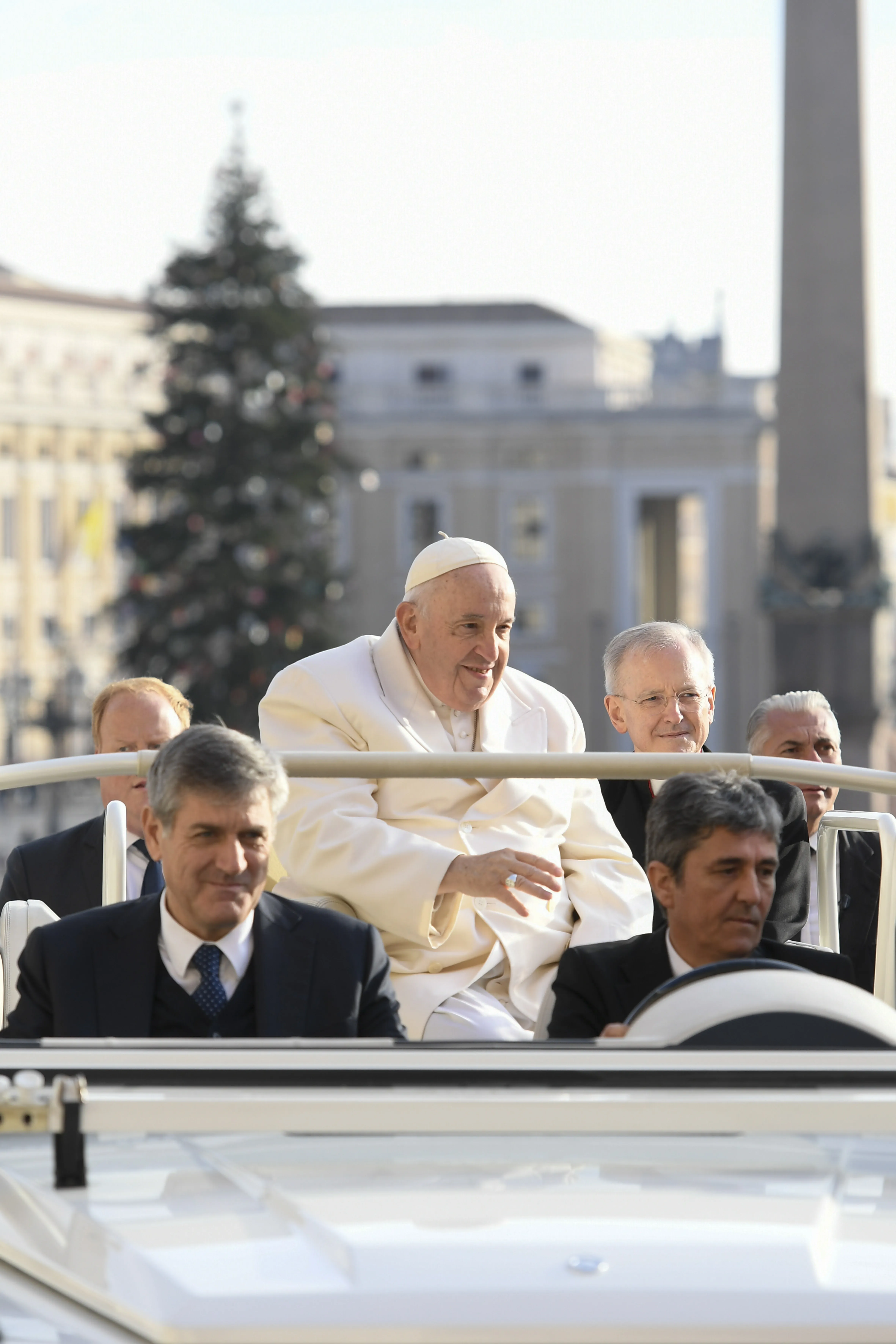
Vatican City, Aug 2, 2018 / 04:57 am (CNA/EWTN News).- Thursday the Vatican changed the Catechism’s teaching on the permissibility of the death penalty, which the Church has taught is legitimate in extreme cases, stating it is ‘inadmissible,’ and its elimination will be sought.
A new draft of paragraph 2267 of the Catechism of the Catholic Church was issued by the Congregation for the Doctrine of the Faith Aug. 2, after Pope Francis approved it in May.
Quoting Pope Francis’ words in a speech of Oct. 11, 2017, the new paragraph states, in part, that “the Church teaches, in the light of the Gospel, that ‘the death penalty is inadmissible because it is an attack on the inviolability and dignity of the person,’ and she works with determination for its abolition worldwide.”
Reasons for changing the teaching, the paragraph says, include: the increasing effectiveness of detention systems, growing understanding of the unchanging dignity of the person, and leaving open the possibility of conversion.
Until now, the Church has consistently taught that the state has the authority to use the death penalty, in cases of “absolute necessity,” though with the qualification that the Church considered such situations to be extremely rare.
The Catechism of the Catholic Church had stated: “Assuming that the guilty party’s identity and responsibility have been fully determined, the traditional teaching of the Church does not exclude recourse to the death penalty, if this is the only possible way of effectively defending human lives against the unjust aggressor.”
The new teaching will be included in all the editions of the Catechism going forward, a Vatican communique stated Aug. 2.
The full text of the new draft of paragraph 2267 states, in full:
“Recourse to the death penalty on the part of legitimate authority, following a fair trial, was long considered an appropriate response to the gravity of certain crimes and an acceptable, albeit extreme, means of safeguarding the common good.”
“Today, however, there is an increasing awareness that the dignity of the person is not lost even after the commission of very serious crimes. In addition, a new understanding has emerged of the
significance of penal sanctions imposed by the state. Lastly, more effective systems of detention have been developed, which ensure the due protection of citizens but, at the same time, do not definitively deprive the guilty of the possibility of redemption.”
“Consequently, the Church teaches, in the light of the Gospel, that ‘the death penalty is inadmissible because it is an attack on the inviolability and dignity of the person,’ [1] and she works with determination for its abolition worldwide.”
If you value the news and views Catholic World Report provides, please consider donating to support our efforts. Your contribution will help us continue to make CWR available to all readers worldwide for free, without a subscription. Thank you for your generosity!
Click here for more information on donating to CWR. Click here to sign up for our newsletter.







The Catechism of the Council of Trent remained unchanged for centuries.
This one? Ha.
The late Cardinal Avery Dulles warned that if the Church changed it’s 2000 year old teaching on the moral permissibility of the death penalty, it would open the door to changing other doctrines previously considered unchangeable as well (abortion, euthanasia, contraception, the inviolability of marriage, a male only clergy, Papal Infallibility). This change is dangerous, poorly thought out and could potentially spell disaster for the Church.
On a possible shortened path to personal conversion, Samuel Johnson offered this earlier prudential judgment: “Depend upon it, sir, when a man knows he is to be hanged in a fortnight, it concentrates his mind wonderfully” (The Life of Samuel Johnson). One might be reminded, here, of St. Therese of Lisieux who discovered her vocation in the Church by praying for a sentenced convict who then converted seconds before his execution by the guillotine.
And then there’s John Goeghan, notorious child-rapist priest, who was not executed by the court but still was hanged—in his cell by another convict during the first year of his 10-year sentence. In an imperfect world even a merciful prison term can turn into a de facto death sentence.
So, do conundrums remain?—How do we now protect the dignity of, say, a prison guard’s life against fatal assault be convicts who are already serving life sentences, now with no further deterrent penalties?
Asked about the restrictive wording regarding capital punishment in the earlier Catechism (1994), the then Cardinal Ratzinger responded: “Clearly the Holy Father has not altered the doctrinal principles…but has simply deepened (their) application…in the context of present-day historical circumstances” (National Review, July 10, 1995, p. 14; First Things, Oct. 1995, 83). And, in a July 2004 letter to (former!) Cardinal McCarrick, he wrote: “Not all moral issues have the same moral weight as abortion and euthanasia….There may be a legitimate diversity of opinion even among Catholics about waging war and applying the death penalty, but not however with regard to abortion and euthanasia.” As an aside, my memory is that the larger correspondence was widely circulated among bishops in America, but with this cover letter detached.
Concurring with the recent announcement by the Vatican, the late Jesuit Cardinal Avery Dulles clearly opposed the death penalty, but he also concluded that traditional teachings on “retributive justice” and “vindication of the moral order” (not to be conflated with vengeance, and mentioned elsewhere in the Catechism) were not reversed by (now St.) Pope John Paul II’s strong “prudential judgment” regarding the actual use of capital punishment. He noted that the pope simply remained silent on these other teachings. (“Seven Reasons America Shouldn’t Execute”, National Catholic Register, 3-24-02). As commentaries proliferate on the solidified Vatican position from the Congregation for the Doctrine of the Faith, Cardinal Dulles’ essay would be a good read. (The problem of false convictions would seem less an issue, given the extensive use now of nearly infallible DNA evidence.)
We knew this was coming.
“Inadmissible”
Pope Francis’s yet another end-run around doctrine?
Twenty centuries where the Church did not have the truth about the “inviolability and dignity” of the person but She is enlightened now???
But not “intrinsically evil”…
Yeah, I don’t think a new teaching can be snuck into the Catechism like that, with no reference to any authoritative document, especially since it contradicts all prior magisterial teaching. This is pretty clear evidence that Bergoglio is an antipope and that Benedict XVI is still the reigning Pontiff.
The Charles Manson’s of our age are fed and housed for $70,000 per annum. Could those funds be better utilized? Not being keen on the chair, the noose or the firing squad myself, I nevertheless characterize this last “word of wisdom” from the Domus Sanctae Marthae as ninety-nine percent of the rest of the noise from there – merely more left-wing knee jerk Jesuit balderdash. Yes the broken clock is right twice a day but this isn’t one of those times.
Credence squandered is not easily regained, and rest assured squandered it be. Start cleaning house – beginning at the very tippy-top so we can get on with business. No other topic is so pressing as that right now. It’s called proper prioritization.
Get it? Get with it. Putting it off to the next millennium (or the next pontificate — whatever comes first) won’t due.
I don’t have a dog in this fight. Either way I can live with it. What is of deep concern is change to dogma. “Today, in fact, as a consequence of the possibilities which the state has for effectively preventing crime, by rendering one who has committed an offense incapable of doing harm – without definitely taking away from him the possibility of redeeming himself – the cases in which the execution of the offender is an absolute necessity are very rare, if not practically nonexistent” (John Paul II Evangelium vitae 56.69 Cf Gen 4:10). The issue with John Paul II and the death penalty is that he was against it. John Paul II made it virtually impossible to exercise the death penalty in Evangelium by contrasting “absolute necessity” with “practically nonexistent”. Either something exists or it doesn’t. “Practical nonexistence is measured v Nonexistent which is an oxymoron. If we can’t practice it then what is it? However this apparent contradiction is conditional by saying “if not”, which leaves the slimmest of possibles open. So the Pontiff virtually changed the doctrine without changing it. The difference with Pope Francis’ revision of the Catechism is that it changes a dogma. My concern then is this highly contested doctrine is a testing ground for change of other more essential doctrine if the Pope’s argument that “The death penalty is inadmissible because it is an attack on the inviolability and dignity of the person, and she works with determination for its abolition worldwide.” This is a rationale that differs from “absolutely necessary” effectively saying the traditional doctrine was wrong placing dogma within the purview of cultural change.
“The death penalty is inadmissible because it is an attack on the inviolability and dignity of the person.”
The wilful killing of a human being which attacks the inviolability and dignity of the person is called a murder. So, if Pope Francis is correct, the Church for the past 2,000 years, and the tradition of revelation from the time of Noah through Moses and beyond, has condoned a sin which cries to heaven for vengeance.
You’re as sick as Francis. Read the book of Numbers.
Perhaps some of the cardinals could submit a dubia, pointing out that this new statement is contradicting all of Church history. I’m sure the Pope would answer that, right?
If I sound bitter, it is because I am. It would certainly be nice to be living in a time when one could feel confident that the Pope was not actually trying to destroy the Church.
The Holy Spirit is strong in the Holy Father. God bless our leader and his flock.
Would the Holy Spirit deliberately confuse and muddle the faithful; going so far as to refuse to clarify Church teachings?!?
I think you made a typo in your name. It’s spelled “gullible,” not “gibbon.”
The Pontiff is doing yeoman’s work in dispelling the old myth that all Jesuits are intellectuals. That’s a fact lost on his sycophants.
I see this as within the realm of “development” rather than “change”. The Church always strives to go deeper into the mind of Christ and to bring Christ forth in time until time will be no more. If we ask if Christ would give the death sentence or if He would inject the poison, pull the trigger, turn on the electricity what would our answer *have to be* if we put ourselves in the place of Christ??? The question of the death penalty is not addressing the immediate defense of the life of the “innocent” (ie you shoot at one who is shooting at you, etc) but looking at the simple fact that the one who did do the crime is no danger to anyone once they are incarcerated correctly/securely (though we understand some do manage—always have/always will—to find ways to do more harm). Many will repent and finish out their sentences and even be in Heaven before some of us who think we’re not so bad? The Church exists to teach Christ and I do believe She’s doing that. We align ourselves with Christ and His holy Church; Christ does not align with our opinions. It will take prayer and striving to do His holy will perhaps for us to fully understand and embrace this.
“I see this as within the realm of “development” rather than “change”. The Church always strives to go deeper into the mind of Christ and to bring Christ forth in time until time will be no more. If we ask if Christ would give the death sentence or if He would inject the poison, pull the trigger, turn on the electricity what would our answer *have to be* if we put ourselves in the place of Christ???”
Developments do not flatly contradict what came before; change does.
We don’t have to ask whether Christ would give the death sentence. Have you never read the Bible? Like the story of Ananias and Saphira in Acts 5? Not to mention, for example, the deaths of the firstborn sons of Egypt at the time of the Passover. Or do you think God the Father cruelly did something that was wrong, while Jesus said, “Oh, gosh, Dad, I really don’t think we should do that, because it is an attack on the inviolability and dignity of the person?”
But what about infallibility in Faith and Morals?
If this ‘teaching’ is only being fulfilled, where was the Church up to this time in not knowing the truth about the full dignity of the person?
While I am generally against the death penalty, my initial reaction is that this pronouncement of the pope is not only wacko and non-official, but also so very dangerously confusing to all the people of the world.
It’s not the place of bishops to decide about the particular conditions for using the death penalty, and they should limit their statements to general principles regarding just punishment and fairness to all.
In general, it seems that so much damage has been done by bishops inserting their personal opinions as settled doctrine. This confusion has caused people to generally take the teachings of the Catholic Church as a matter of individual preference, with the result of so many lives devastated by promiscuity and perversion and birth control and abortion — and ultimately the tragic breakdown of the family and the aching loneliness of western society.
Our bishops and priests in America — perhaps the majority — seem to have lost their nerve in defending the moral teachings of Jesus as truly helpful for us in this life, as well as preparing us for eternal happiness in the next life. The ways of Jesus are the ways of true love. The ways of the secular world are selfishness and lies disguised as love.
So it is that some bishops defend the lives of guilty murderers to a fault with loud and showy proclamations, while neglecting the lives of innocent victims unto death by the faintness of their protests. These bishops seem so eager to be trendy and popular in the ways of the world, and so ashamed of Jesus as found in the Catholic Church which is his gift to us.
Yes, it is true that the most vile criminal retains his dignity as a human always. He may have acted as an animal, or worse, but no person ever should be considered an animal. Let us hope and pray for all persons to be saved no matter how horrible their sins, in the spirit of the divine mercy of Jesus.
This doesn’t mean that the death penalty is never to be allowed. I’d sincerely prefer it to not be applied again, but wonder if it may be valid for those criminals who persist in preying on other prisoners with physical and sexual assaults, or who continue to commit serious crimes in society through lackeys.
Also, the governments of different countries should have discretion to assess their own national situations in reference to the application of the death penalty.
If our bishops really want a voice in the wider society, they will know their God-given place in presenting transcendent principles and not personal opinions. Instead of telling politicians how to do their jobs, our bishops should be considering how well they are fulfilling their own roles as representatives of the Good Shepherd — for so very many are being ravaged by wolves for lack of strong teaching and stout encouragement.
The resulting casualties are breathtaking in their statistical numbers, and heartbreaking to behold in each particular personal sadness. The secular world is darkness and death and despair; it is Jesus alone who is light and life and love.